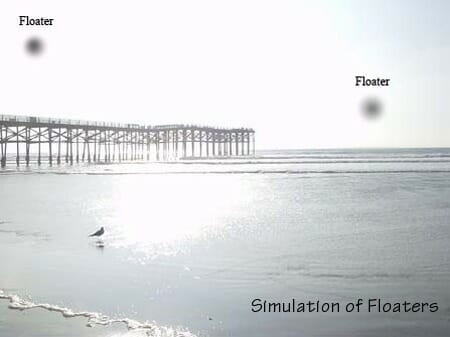Are You Seeing Tiny Floating Dark Spots at Times?

If you’ve ever walked out into a sunny day after being indoors, and suddenly you see small moving spots appear in your field of vision, then you likely know what eye floaters are. Using this scenario where you move from a darker area to looking at something bright is especially poignant, as eye floaters tend to manifest during such an experience. Although they don’t typically interfere with a patient’s site — you wouldn’t avoid driving because of them, for example — they can be quite a distraction in one’s field of vision.
What tends to happen most often is that patients who experience eye floaters simply learn to ignore them, and the floaters themselves will occasionally improve over time. But just as with other common eye conditions, eye floaters can be a sign of something more serious, and a sudden uptick in the amount of floaters you are seeing should warrant medical attention.
What May Be Causing Serious Eye Floaters?
When floaters in a patient’s field of vision are the result of something more serious, conditions get bad enough so that there is a loss of side vision of flashes of light accompanying them. Symptoms of this nature may be caused by a tear in the retina or detachment thereof, or even bleeding within the eye — all of which should be brought to the immediate attention of an eye doctor.
In terms of symptoms, patients who see tiny gray or black spots are experiencing eye floaters. When you try to narrow your focus on them to study them more, they appear to dart away and resist your focus. They could also appear as squiggly lines, cobweb-like forms, threads, rings, or dots. And patients who develop floaters in their field of vision generally do not see them disappear on their own.
Most of these shapes are the result of small flecks of collagen, which is a protein. In the back of the eye, there is a area that is filled with something called vitreous humor, which is a substance that is gelatinous in nature. When patients get older, this substance, which is filled with collagen fibers that shrink and shred, can experience an accumulation that changes the amount of light that then can hit the retina. This is where the floaters emanate from.
On the more serious side, eye floaters may be associated with migraine headaches, which should also direct a patient to seek medical attention. Patients who experience flashes of light or eye floaters after eye surgery, or who feel intense pain along with the eye floaters, should also consult a medical professional immediately.
Learn more about eye floaters at the WebMD site now. And if you are experiencing them, consider seeking the help of a licensed optometrist now.
[Photo Via: Snead Cataract]

